|

HOME |
ABOUT | INDEX |
NEWS |
FACEBOOK |
CONTACT
ADDICTIONS
Substance Misuse | Rehabilitation | Recovery |Sobriety
Substance
Abuse in
the LGBTQ Community
The use of
alcohol, drugs, marijuana, and tobacco trends higher in
the LGBTQ community than in the general population.
25 % of
the LGBTQ population abuse alcohol, while only 5-10% of
the heterosexual population abuse alcohol.
81% of lesbians have used alcohol in the last year.
89% of gay men have used alcohol in the last year.
Over half of LGBTQ youth (56%) used alcohol in the last
year, including 47% of LGBTQ youth under the age of 21.
Over one in three LGBTQ youth (34%) used marijuana in
the last year, including 29% of LGBTQ youth under the
age of 21.
One in 10 (11%) LGBTQ youth reported having used a
prescription drug that was not prescribed to them in the
last year, and this rate was the same for those under
and over the age of 21.
11% of LGBTQ youth reported regular use (daily or weekly
use) of both alcohol or marijuana. Rates of regular
alcohol or marijuana use were much higher for LGBTQ
young adults ages 21 or older than they were for LGBTQ
youth under age 21. One in three LGBTQ young adults ages
21 or older (33%) reported regular alcohol use, compared
to 5% of LGBTQ youth under age 21. One in five LGBTQ
young adults ages 21 or older (21%) reported regular
marijuana use, compared to 9% under age 21.
16.1% of lesbian, gay, or bisexual adults smoked
cigarettes – compared with 12.3% of
heterosexual/straight adults. Use of any commercial
tobacco product was also higher among lesbian, gay, or
bisexual adults, compared to heterosexual/straight
adults (25.1% vs 18.8%).
17.4% of gay, lesbian, or bisexual high school students
currently used any tobacco product – compared to 11.4%
of heterosexual high school students.
LGBTQ Guide to Trying Sobriety
Different Kind of
Buzz: Choosing Sober Life for
Pride and Beyond
Pride Institute: Alcohol Addiction
LGBTQ Celebs Who Are Sober and
Proud
Crestview Recovery
Gays Vape at Significantly
Higher Rates According to
Surgeon General
Drew Barrymore
Talks About Her Sobriety
Best LGBTQ And Gay-Friendly Rehab Centers
Free by the Sea: LGBTQ Substance Abuse Treatment
Language and
Terminology of Substance Use Disorders
The LGBTQ Community and Alcoholism
Bedrock Recovery Center
How Alcoholism Became a Serious Problem
in the LGBTQ Community
Sunshine Behavioral Health: LGBTQ Resources
Addiction and
the Transgender Community
Healthy Life
Recovery
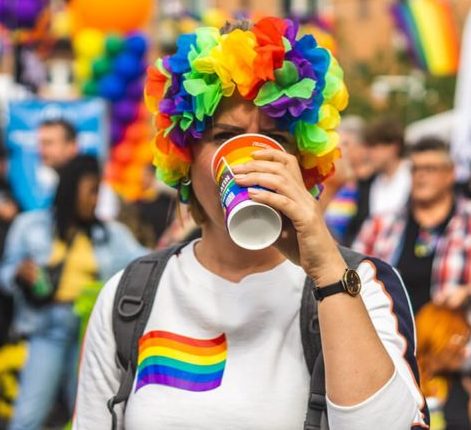

Addictions and Recovery Support for the LGBTQ Community
Drug abuse and addiction present major challenges for
the lesbian, gay, bisexual, transgender, and queer (LGBTQ)
community. Already high within the general population,
rates of substance abuse increase substantially within
the LGBTQ community alone.
Unfortunately, little research is available to confirm
actual rates of drug abuse among those who identify as
LGBTQ, so it is difficult to ascertain the exact extent
of the problem. However, a study conducted by
Australia's Queensland Association for Healthy
Communities presents a grim picture. In this 2005
survey, 44.8 percent of respondents claimed to smoke
daily, with most using between 11 and 20 cigarettes per
day.
Alcohol abuse was also rampant, with 41.4 percent of
respondents drinking more than eight alcoholic beverages
per week. Perhaps most alarming of all, half of
respondents had used recreational drugs at some point or
were still using them at the time of the survey. The top
five recreational drugs mentioned in the survey included
marijuana, ecstasy, amyl nitrite (poppers), crystal meth,
and speed.
Alcoholism and Addiction in the Gay Community
Northern Illinois Recovery
Addiction
Resource: Best LGBTQ Friendly Rehab Centers
Drug Addiction in the LGBTQ Community
Sunshine Behavioral Health: LGBTQ Resources
Addiction
Resource: Best LGBTQ Friendly Rehab Centers
Huff Post: What I Learned While Getting Sober at 21
Substance Abuse and Cannabis Usage:
Supporting and Affirming the LGBTQ Community and Youth
Live
Another Day: QTBIPOC Addiction and Mental Health Support
The LGBTQ Community and Alcoholism
Ohio Recovery
Center

Preliminary research suggests that rates of drug abuse
are also high in the United States. A study published in
the Journal of Substance Abuse Treatment found that
LGBTQ youth were far more likely to develop crippling
addictions than their heterosexual counterparts.
Furthermore, once they did fall victim to addiction,
these individuals were less likely to seek rehab and
recovery treatment.
Why are LGBTQ addiction rates so high? It is clear that
drug addiction is the cause of much suffering among
members of the LGBTQ population, but why exactly is this
community afflicted by such high rates of substance
abuse? A number of factors can contribute to LGBTQ drug
abuse, including the following:
--Higher rates of depression among LGBTQ individuals
--A need to escape from the constant presence of social
stigma and homophobia
--Efforts to either numb or enhance sexual feelings
--Ease shame and guilt related to LGBTQ identity
--Drug use among peers leads to pressure on non-users
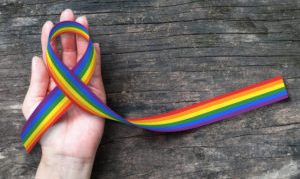
Unfortunately, many of the factors contributing to the
development of addiction in LGBTQ individuals can also
prevent these sufferers from seeking treatment.
Addiction, as well as mental illness in general, carries
a heavy social stigma with it, but an LGBTQ identity
compounds that stigma even more. Additionally, many
members of the LGBTQ community worry that they will not
be able to find LGBTQ recovery centers suited to meeting
their unique needs. They may be unwilling to enter
traditional addiction recovery programs instead of gay
drug recovery facilities, mostly due to their fear of
being targeted by heterosexuals taking part in these
recovery programs. These worries are not necessary,
however, because a number of excellent LGBTQ rehab
facilities are available.
[Source: Recovery.Org]
Different Kind of Buzz: Choosing Sober
Life for Pride and Beyond
LGBTQ Celebs Who Are Sober and Proud
Substance Abuse and Cannabis Usage:
Supporting and Affirming LGBTQ Community
Ohio Recovery
Center
Addiction
Group: Treatment for LGBTQ Clients
Gays Vape at Significantly
Higher Rates According to
Surgeon General
Legacy Healing Center: LGBTQ Young Adults
Substance Abuse Prevention in the LGBTQ Community
Alcohol Rehab Guide: LGBTQ Community and Alcoholism
Detox Local: AAPI Addiction and
Mental Health Resources
The Recovery Village: LGBTQ Resources
Ambrosia Behavioral Health
Michael Boticelli: TED Talk
Michael Botticelli is a drug policy expert. He also
happens to be gay. As Director of National Drug Control
Policy, Michael Botticelli led the Obama
Administration’s drug policy efforts to diminish the
consequences of substance use through evidence-based
prevention, treatment and recovery support services.
His TED Talk lecture (April 2017) is worth viewing.
He says that addiction is a disease and that we should
treat it that way. Only one in nine people in the United
States gets the care and treatment they need for
addiction and substance abuse. A former Director of
National Drug Control Policy, Michael Botticelli is
working to end this epidemic and treat people with
addictions with kindness, compassion and fairness. In a
personal, thoughtful talk, he encourages the millions of
Americans in recovery today to make their voices heard
and confront the stigma associated with substance use
disorders.
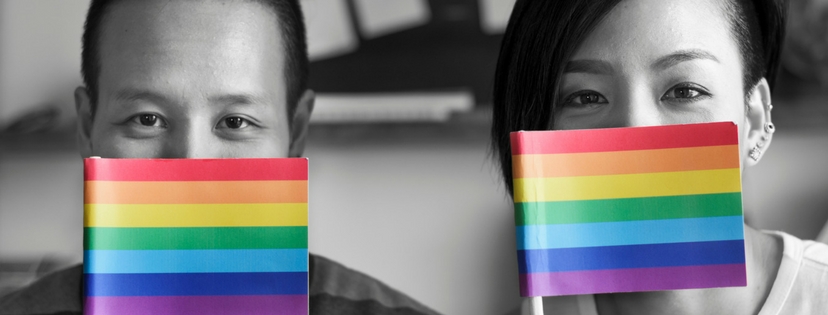
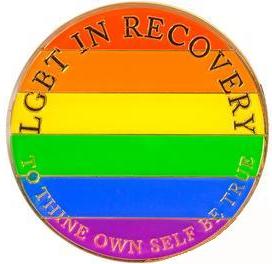
LGBTQ Celebs Who Are Sober and Proud
NBC News: Substance Abuse in the LGBTQ Community
COVID Pandemic Exacerbating LGBTQ Alcohol Abuse
Michael Boticelli TED Talk: Addiction is a Disease
Substance Misuse in LGBTQ
Populations
How Alcoholism Became a Serious Problem
in the LGBTQ Community
LGBTQ People and Substance Abuse Statistics and
Resources
Why the Risk of Substance Use Disorders Is Higher for
LGBTQ People
As Director of National Drug Control Policy, Botticelli
led the Obama Administration's drug policy efforts,
which are based on a balanced public health and public
safety approach. The Administration advanced historic
drug policy reforms and innovations in prevention,
criminal justice, treatment and recovery.
In response to the national opioid epidemic, Botticelli
coordinated actions across the Federal government to
reduce prescription drug abuse, heroin use and related
overdoses. These include supporting community-based
prevention efforts; educating prescribers and the public
about preventing prescription drug abuse; expanding use
of the life-saving overdose-reversal drug naloxone by
law enforcement and other first responders; and
increasing access to medication-assisted treatment and
recovery support services to help individuals sustain
their recovery from opioid use disorders.
According to Pride Institute, "In the LGBTQ community,
research suggests that alcohol abuse and dependence
occurs at even higher rates than in the mainstream
population. Independent studies collectively support the
estimate that alcohol abuse occurs in the LGBTQ
community as rates up to three times that in the
mainstream population. Said another way, alcohol abuse
is estimated to occur in up to 45% of those in the LGBTQ
community."
Michael Boticelli TED Talk: Addiction is a Disease
Why the Risk of Substance Use Disorders Is Higher for
LGBTQ People
LGBTQ Addiction Recovery Centers
Substance Abuse Prevention in the LGBTQ Community
Best LGBTQ And Gay-Friendly Rehab Centers
Westwind Recovery
Drew Barrymore Talks About Her Sobriety
Legacy Healing Center: LGBTQ Young Adults
Bedrock Recovery Center
Free by the Sea: LGBTQ Substance Abuse Treatment
Mental Health Support
Hotlines
The LGBTQ Community and Alcoholism
Live Another Day: QTBIPOC
Addiction and Mental Health
Support
Detox Local: AAPI Addiction and
Mental Health Resources
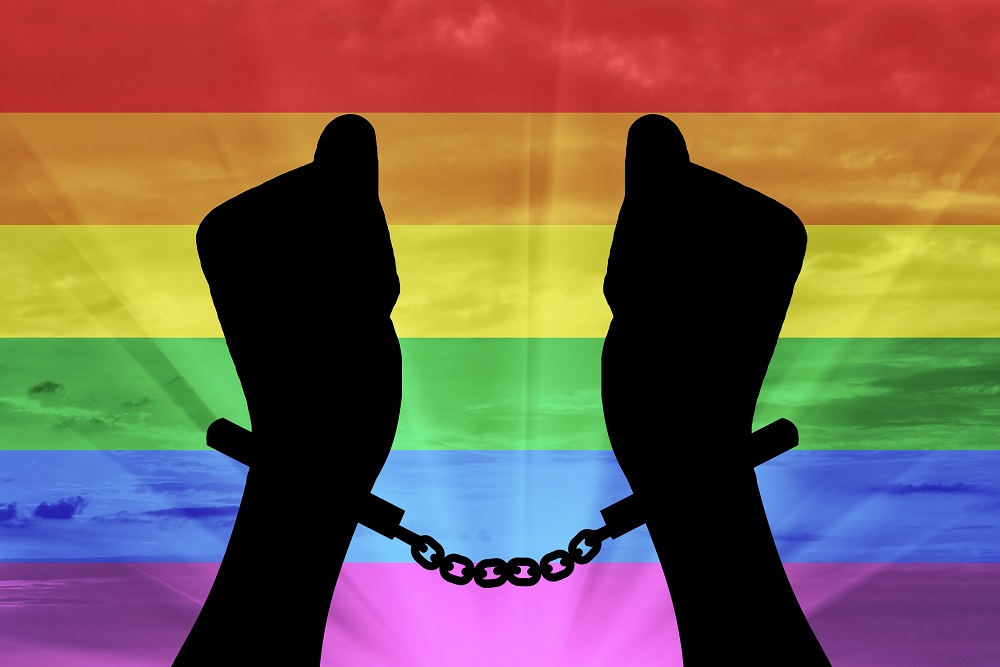
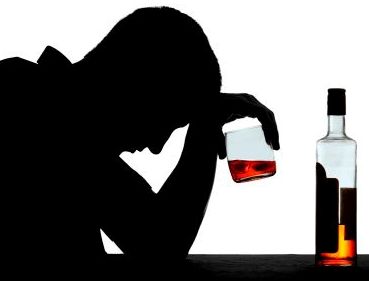
Ann Leible is an LPC with Pride Institute. She offers
this critical information about drug and alcohol abuse
among LGBTQ persons:
It is generally held among researchers that LGBTQ
persons are more likely to use alcohol and drugs than
the general population and more likely to abuse alcohol
and drugs, as cited in the Center for Substance Abuse
Treatments A Provider’s Introduction to Substance Abuse
Treatment for Lesbian, Gay, Bisexual, Transgender, and
Queer Individuals. Twenty to twenty-five percent of gay
men and lesbians are heavy alcohol users, compared to
3-10% of the heterosexual population.
Why is this? What factors contribute to the prevalence
of chemical abuse among gays and lesbians, bisexual,
transgender, and queer individuals? And, finally, what
can be done about it? Attitudes and assumptions
regarding homosexuality and chemical abuse have evolved
throughout the years. Until 1973, homosexuality was
defined as a mental illness by the American Psychiatric
Association.
Different Kind of
Buzz: Choosing Sober Life for
Pride and Beyond
Drug/Alcohol Rehab USA: LGBTQ Friendly Treatment Centers
Near You
Pinnacle Peak Recovery: Substance Abuse Help for LGBTQ
People
LGBTQ
and Addiction: Causes, Resources, Treatment
Addiction
Resource: Best LGBTQ Friendly Rehab Centers
Healthy Life
Recovery
Gays Vape at Significantly Higher Rates According to
Surgeon General
LGBTQ Comprehensive Guide to Drug Abuse
Inspire Recovery: LGBTQ Rehab
SAMHSA Publication: Advancing Opportunities for Recovery
from Addictions in LGBTQ Population
All Treatment: Drug Rehabilitation
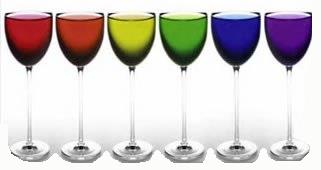
Alcoholism, drug abuse, and chemical dependency issues, once treated
solely as legal problems, now are seen as illnesses of
the mind, body, and spirit. At one time it was believed
that there was a causal relationship between
homosexuality and alcoholism with the idea that
suppressed homosexual tendencies actually triggered
chemical abuse and dependency.
Today this myth has been dispelled by research. Instead,
scientists believe that societal factors affect the
relationship between chemical abuse and the experiences
of members of the LGBTQ community. The society in which
we live marginalizes the LGBTQ community. In fact, there
is an ever-presentness of possible oppression in LGBTQ
people’s lives. Under such conditions, LGBTQ folk can
experience varying degrees of heterosexism.
[Source: Pride Institute]
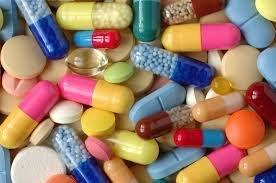
LGBTQ Friendly Addiction
Recovery Centers
Drug/Alcohol Rehab USA: LGBTQ Friendly Treatment Centers
Near You
The Recovery Village: LGBTQ Resources
Free by the Sea: LGBTQ Substance Abuse Treatment
Healthy Life
Recovery: LGBTQ Resources
LGBTQ Addiction Recovery Centers
Crestview Recovery
Addiction
Group: Treatment for LGBTQ Clients
Drug Watch: LGBTQ Comprehensive Health
and Wellbeing
Best LGBTQ And Gay-Friendly Rehab Centers
Bedrock Recovery Center
Northern Illinois Recovery
Sunshine Behavioral Health: LGBTQ Resources
Healthy Life
Recovery
Ohio Recovery
Center
Ambrosia Behavioral Health
Legacy Healing Center: LGBTQ Young Adults
Drug/Alcohol Rehab USA: LGBTQ Friendly Treatment Centers
Near You
Pinnacle Peak Recovery: Substance Abuse Help for LGBTQ
People
Inspire Recovery: LGBTQ Rehab
Westwind Recovery
Why Are There More LGBTQ Addicts?
Ann Leible (Counselor with Pride Institute) offers an
explanation as to why substance abuse may be higher
among LGBTQ people. She sites these factors:
Heterosexism - Heterosexism is defined as the
stigmatization of non-heterosexual forms of emotional
and affectional expression, sexual behavior or
community. Negative covert and overt messages about the
gay and lesbian lifestyle as well as incidents of hate
in the form of threats, acts of humiliation, emotional
abuse, and even murder occur frequently. Other common
examples of heterosexism include: rejection by family,
friends, and peers; loss of employment or lack of
promotion; and observing/hearing people make
heterosexist jokes. Heterosexism can contribute to
internalized homophobia, shame, and a negative
self-concept.

LGBTQ Celebs Who Are Sober and
Proud
Drug Watch: LGBTQ Comprehensive Health
and Wellbeing
Addiction Campuses: LGBTQ Friendly Drug and Alcohol
Treatment
Psychology Today: Why Does the LGBTQ Community
Experience More Drug Abuse?
Quit Alcohol: LGBTQ Addiction Resources
Best LGBTQ And Gay-Friendly Rehab Centers
Substance Abuse and Cannabis Usage:
Supporting and Affirming the LGBTQ Community and Youth
Ohio Recovery
Center
The LGBTQ Community and Alcoholism
LGBTQ Comprehensive Guide to Drug Abuse
Addiction
Group: Treatment for LGBTQ Clients
Bedrock Recovery Center
Self-Medication - Some LGBTQ individuals self-medicate
with drugs and alcohol as a way to cope with or numb
negative feelings associated with heterosexism, such as
isolation, fear, depression, anxiety, anger, and
mistrust. Others in the gay community may use mind
altering substances as a way to cope with stressors
caused by the tensions of living under the stigma of
marginalization. In fact, substance use is a large part
of the social life of many in the LGBTQ community. The
gay bar scene is regarded as a risk factor for substance
abuse among the gay community. But these bars have often
been the only places where LGBTQ folks can socialize and
feel free from the prevailing oppression that is
experienced every day in a strongly heterosexist
society. The LGBTQ individual who has experienced
rejection from his or her biological family may find in
the gay bar that one opportunity for identity
affirmation and acceptance.
Heterosexism also causes many LGBTQ folks to
compartmentalize their lives. On the outside, they may
follow the rules of the dominant society and behave in
ways that are accepted as the norm in order to fit in
and succeed. Kimeron N. Hardin, in The Gay and Lesbian
Self-Esteem Book: A Guide to Loving Ourselves (1999),
defines this identity as the public self. The secret
self, on the other hand, is that part of self that is
honest and consistent with how one truly feels and what
one desires. It remains hidden and is often perceived by
the LGBTQ identified individual as shameful, evil, or
unworthy. Engaging in such actions of secret keeping,
compartmentalizing, and self-degradation can take a huge
emotional toll on an individual. As every 12 Step member
knows, secrets keep us sick.

NBC News: Substance Abuse in the LGBTQ Community
Quit Alcohol: LGBTQ Addiction Resources
The Recovery Village: LGBTQ Resources
Live Another Day: QTBIPOC
Addiction and Mental Health
Support
LGBTQ
and Addiction: Causes, Resources, Treatment
Sunshine Behavioral Health: LGBTQ Resources
Legacy Healing Center: LGBTQ Young Adults
Drug/Alcohol Rehab USA: LGBTQ Friendly Treatment Centers
Near You
Pinnacle Peak Recovery: Substance Abuse Help for LGBTQ
People
Inspire Recovery: LGBTQ Rehab
Drew Barrymore Talks About Her Sobriety
How Alcoholism Became a Serious Problem
in the LGBTQ Community
Free by
the Sea:
LGBTQ
Substance
Abuse
Treatment
Addiction and
the Transgender Community
LGBTQ Comprehensive Guide to Drug Abuse
Substance use can provide an avenue of relief that is
easily accessible and immediate in its effects. It can
also mirror the coping mechanisms of
self-compartmentalizing. The user can experience a
chemically promoted dissociation, which the LGBTQ
individual may find both familiar and comforting.
Therefore, the compelling allure of alcohol and drugs
manifest, and the user becomes vulnerable to the cycle
of chemical addiction.
Barriers in Treatment Services - Heterosexism plays a
part in the chemically dependent LGBTQ individual’s
inability to access effective treatment services.
Substance abuse treatment facilities are often not able
to meet the needs of this special population. The
treatment staff of such facilities may have varying
heterosexist assumptions regarding the LGBTQ clients who
access their services. They may be uninformed about
LGBTQ issues, insensitive to or antagonistic toward
LGBTQ clients or believe that homosexuality causes
substance abuse or can be changed by therapy. Other
clients may have negative attitudes toward the LGBTQ
client.

Different Kind of
Buzz: Choosing Sober Life for
Pride and Beyond
Quit Alcohol: LGBTQ Addiction Resources
Drug/Alcohol Rehab USA: LGBTQ Friendly Treatment Centers
Near You
The Recovery Village: LGBTQ Resources
National Association of LGBTQ Addiction Professionals
and Their Allies
Healthy Life
Recovery: LGBTQ Resources
LGBTQ Addiction Recovery Centers
Gays Vape at Significantly
Higher Rates According to
Surgeon General
Addiction
Group: Treatment for LGBTQ Clients
Drug Watch: LGBTQ Comprehensive Health
and Wellbeing
Best LGBTQ And Gay-Friendly Rehab Centers
Detox Local: AAPI Addiction and
Mental Health Resources
These issues become barriers in successful treatment
experiences for the LGBTQ individual seeking those
services. Treatment components designed to promote
successful treatment experiences for the LGBTQ client
include cultural sensitivity, an awareness of the impact
of cultural victimization, and addressing issues of
internalized shame and negative self-acceptance. The
integrated biological-psychological social model of
chemical addiction treatment takes into account the
effects of society on the individual and his or her
relation to the use of chemicals.
Cognitive behavioral counseling techniques challenge
internalized negative beliefs and promote emotional
regulation. Such counseling helps the LGBTQ client reach
for internal acceptance instead of the nearest bottle or
drug.
The inclusive and accepting spirit promoted by
Alcoholics Anonymous and other support groups provides
an appropriate alternative to the gay bar. LGBTQ folks
can find a way to transcend the in-authenticity promoted
by cultural oppression through the affirming acceptance
of others. As a result, they may find themselves living
more integrated and expressive lives. Who needs alcohol
or drugs when one’s life is so full?
[Source: Pride Institute]
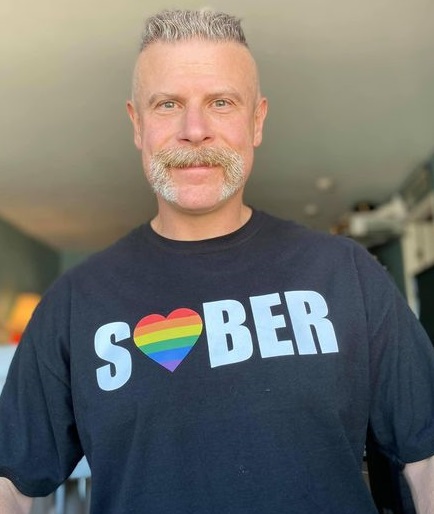
LGBTQ Guide to Trying Sobriety
LGBTQ Celebs Who Are Sober and
Proud
Best LGBTQ And Gay-Friendly Rehab Centers
NBC News: Substance Abuse in the LGBTQ Community
Quit Alcohol: LGBTQ Addiction Resources
Michael Boticelli TED Talk: Addiction is a Disease
Addiction
Resource: Best LGBTQ Friendly Rehab Centers
The Recovery Village: LGBTQ Resources
Language and
Terminology of Substance Use Disorders
National Association of LGBTQ Addiction Professionals
and Their Allies
Healthy Life
Recovery
Language
of Substance Abuse
In the
context of addiction and recovery, "substances" should
understood to include alcohol and a wide range of
prescription and non-prescription drugs. The "chemicals"
in the term "chemical dependency" refer to alcohol and
drugs. The term "self-medicating" refers to the act of
"using, abusing, or misusing" alcohol or drugs for
purposes of coping that ultimately leads to "addiction,
dependence, disorder, disease, or illness."
Contemporary approaches view the field of addiction and
recovery in terms of "disease management" and "recovery
management" and "treatment interventions." As an example
of language that reflects a more supportive approach,
and seeks to minimize stigmatization, modern
verbiage may include newer terms, such as Alcohol Use
Disorder (AUD) or Substance Use Disorder (SUD).
Elevating the concept of "recovery" is important because
it reflects a shift from a "pathology" paradigm to a
"resiliency" paradigm. It is a way of declaring that it
is time for "addiction treatment" agencies to become
"recovery agencies."
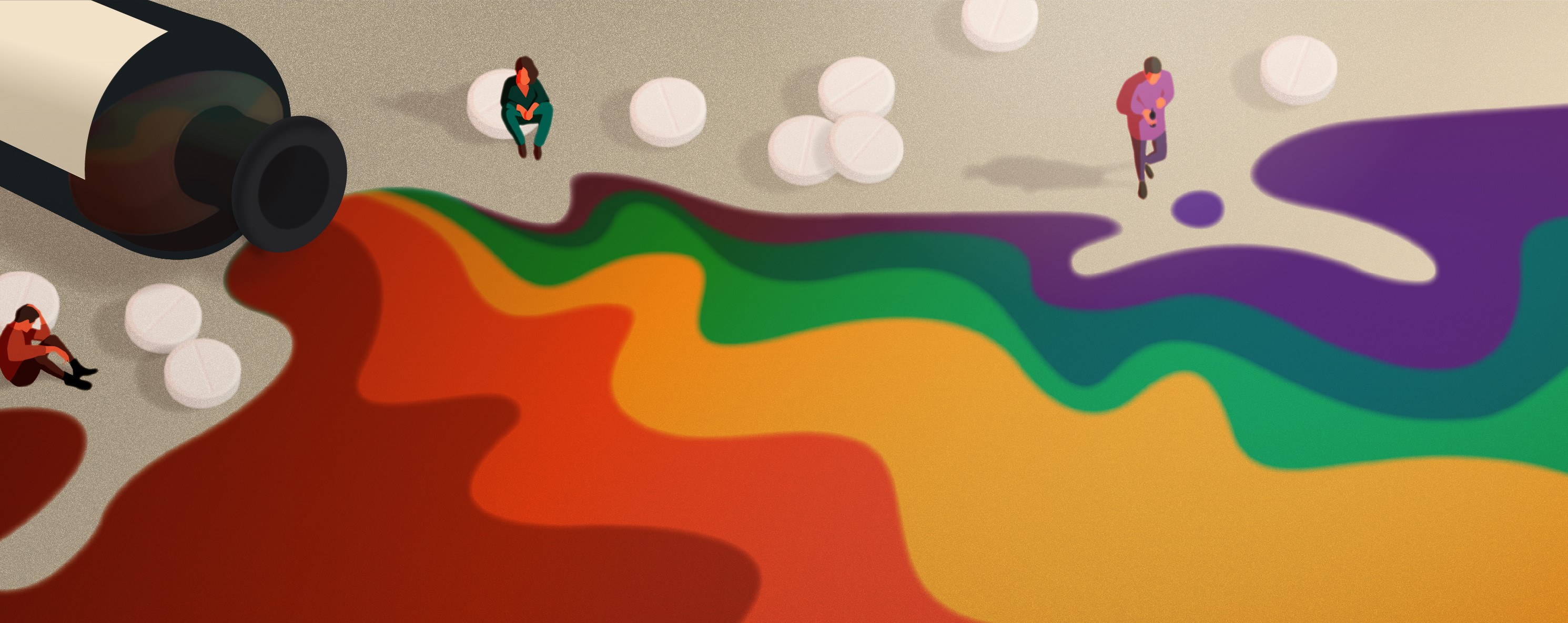
Addiction - This widely understood term describes
“uncontrollable, compulsive drug seeking and use, even
in the face of negative health and social consequences.”
There is a distinction between addiction and dependence,
although many use the words interchangeably. Addiction
conveys both social and health problems, whereas
dependence only encompasses health problems.
Addictive Disorder, Addictive Disease - By incorporating
disorders or disease, these terms reinforce the medical
nature of the condition.
Alcohol and Drug Disease - This term works because it is
precise. Alcohol and drugs is more specific than
substance, which could include any substance to which
one can become addicted, including nicotine and
caffeine. In addition, the word disease clearly
denotes the condition as a health issue.
Alcohol and DrugRelated Problems - This term is useful
as a general descriptor because it refers to the range
of difficulties that may accompany alcohol and drug
disease.
National Association of LGBTQ Addiction Professionals
and Their Allies
Live Another Day: QTBIPOC
Addiction and Mental Health
Support
Addiction
Group: Treatment for LGBTQ Clients
LGBTQ Addiction Recovery Centers
The LGBTQ Community and Alcoholism
Drug Watch: LGBTQ Comprehensive Health
and Wellbeing
Why the Risk of Substance Use Disorders Is Higher for
LGBTQ People
Legacy Healing Center: LGBTQ Young Adults
Psychology Today: Why Does the LGBTQ Community
Experience More Drug Abuse?
Bedrock Recovery Center
Pinnacle Peak Recovery: Substance Abuse Help for LGBTQ
People
National Association of LGBTQ Addiction Professionals
and Their Allies
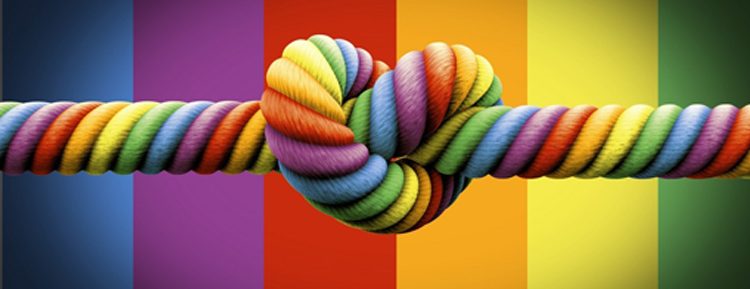
Chemical Dependency - Term used more in clinical
settings than by the public at large, chemical
dependency accurately alludes to the changes in brain
chemistry in alcohol and drug disease.
Dependence - The term is useful because it represents a
distinct clinical diagnosis and it does not include
stigmatizing terminology. Physical dependence is a state
of adaptation that often includes tolerance and is
manifested by a drug class specific
withdrawal syndrome that can be produced by abrupt
cessation, rapid dose reduction, decreasing blood level
of the drug, and/or administration of specific
medication.
Intervention - Broadly used term to describe the
interruption of the progress of an illness or potential
illness. Intervention is widely used in clinical
settings to describe the process in which a group of
formally prepared, concerned parties intervene to
encourage a
person to get help for a substance use disorder.
Patient - As with other illnesses, the word accurately
refers to a person who is under care for a substance use
disorder. It reinforces the fact that substance use
disorders constitute a health issue.
Different Kind of
Buzz: Choosing Sober Life for
Pride and Beyond
Best LGBTQ And Gay-Friendly Rehab Centers
Inspire Recovery: LGBTQ Rehab
Substance Abuse in the LGBTQ Community
LGBTQ Celebs Who Are Sober and
Proud
LGBTQ People and Substance Abuse Statistics and
Resources
Alcohol Rehab Guide: LGBTQ Community and Alcoholism
LGBTQ Guide to Trying Sobriety
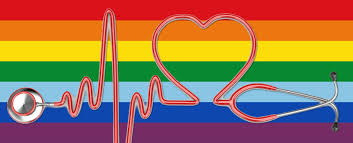
Person With - Using language such as "person with
alcohol and drug disease" or "people with with
addictions" or "persons with substance use disorders"
identifies the individuals as people, rather than
labeling them by their illness. This is referred
to calling someone an "addict" or "alcoholic."
Recovery Management - Straightforward description of
what the recovery process entails. As with other chronic
illnesses such as diabetes and hypertension, a substance
use disorder is an illness that can be treated and
managed, and from which people recover.
Recovery Movement - Term elevates the notion that the
voices and faces of recovery are becoming stronger, more
visible, and more unified. The recovery movement seeks
to make recovery a reality for all who may seek it, free
from stigma, discrimination, and
other barriers.
Remission - Term is aligned with medical terminology
that describes a period of time in which the signs and
symptoms of the illness have disappeared.
Roads/Paths to Recovery - Useful term because it
recognizes that there is no single means to achieve
recovery, but rather that people find recovery via
multiple paths such as clinical treatment, 12step
programs, or medicationassisted recovery.
Language and
Terminology of Substance Use Disorders
Substance Misuse in LGBTQ Populations
Why LGBTQ Treatment?
Substance Abuse in the LGBTQ Community
LGBTQ People and Substance Abuse Statistics and
Resources
LGBTQ Addiction Recovery Centers
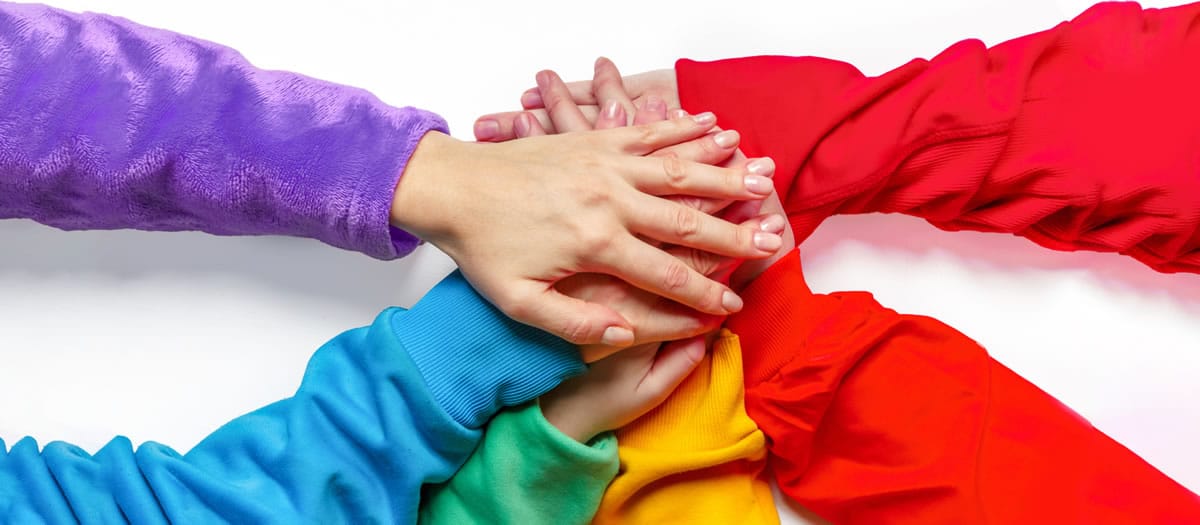
Misuse - Same intended meaning as what has traditionally
been termed as "abuse," but without the stigma and
judgmental overtones that "abuse" carries. Also, "risky
use" or "problem use."
Substance Use Disorder - Includes misuse, dependence,
and addiction to alcohol and/or legal or illegal drugs.
The term is helpful because it encompasses a range of
severity levels, from problem use to dependence and
addiction.
Treatment - Use of any planned, intentional
intervention in the health, behavior, personal and/or
family life of an individual
suffering from alcoholism or from another drug
dependency designed to enable the affected individual to
achieve and maintain sobriety, physical and mental
health, and a maximum functional ability. It effectively
connotes a health intervention.
Use - Term commonly refers to experimental or occasional
consumption of alcohol and drugs. This is preferred to
"abuse."
Wellbriety - Term that combines wellness with sobriety,
conveys the notion that recovery is more than the
cessation of alcohol and drug misuse.
The Recovery Village: LGBTQ Resources
Sunshine Behavioral Health: LGBTQ Resources
Addiction
Group: Treatment for LGBTQ Clients
Pinnacle Peak Recovery: Substance Abuse Help for LGBTQ
People
DetoxRehabs: Best
LGBTQ And Gay-Friendly Rehab
Centers
Free by the Sea: LGBTQ Substance Abuse Treatment
LGBTQ Rehab: Inclusive
Addiction Treatment and Recovery for LGBTQ Community
As anyone who works in addiction treatment can attest,
addiction doesn’t discriminate. For those who already
face ongoing discrimination due to their sexual
orientation or gender identity, seeking addiction
treatment can be particularly daunting. If you are LGBTQ
and are ready to reclaim your life, you’re probably
unsure about where to turn for help. One thing’s for
sure: You have options. Increasingly, rehab facilities
around the country are going to great lengths to be
inclusive to members of the LGBTQ community.
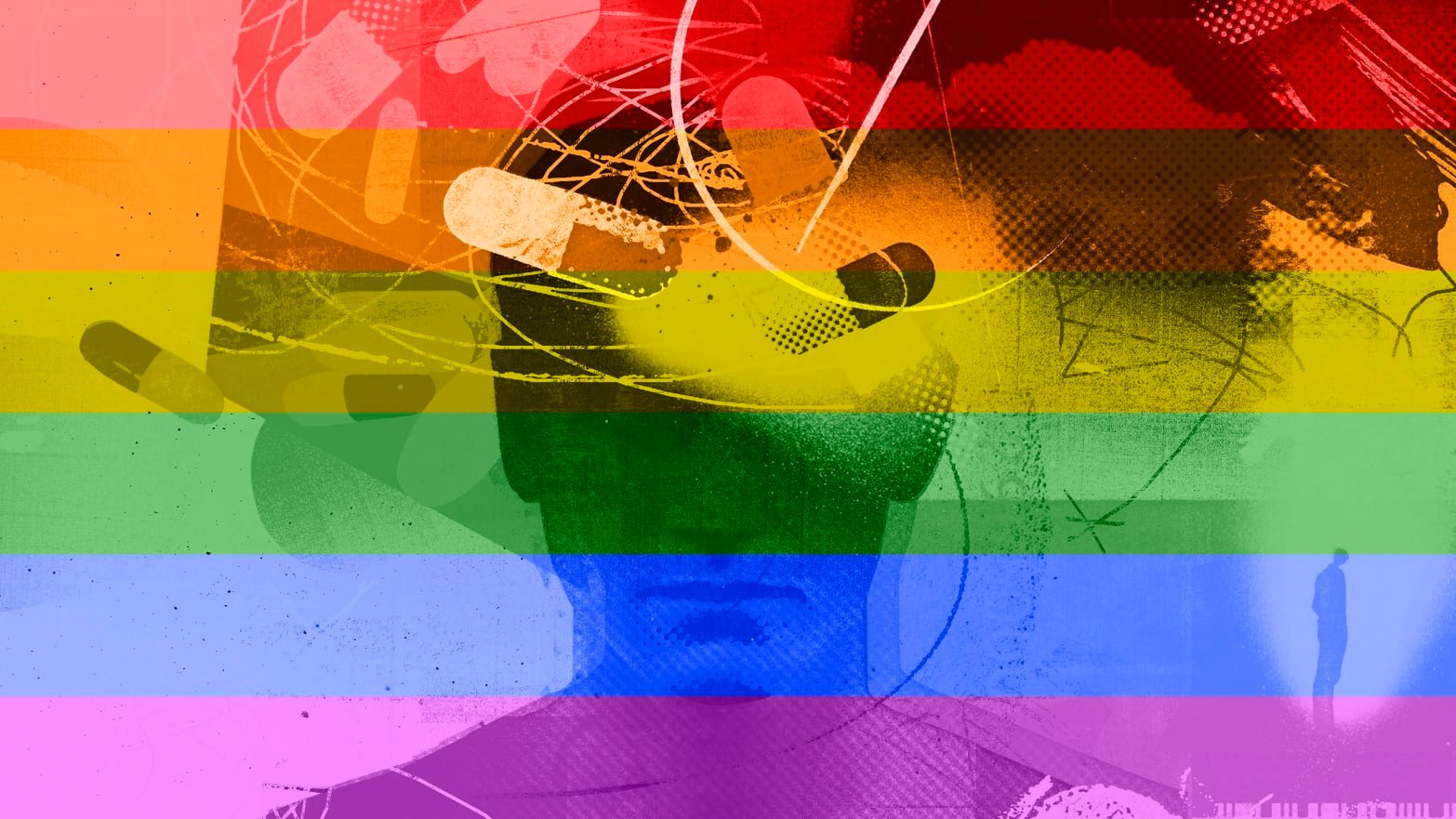
Staggering
Rates of Addiction Among the LGBTQ Community
According to the
Substance Abuse and Mental Health Services
Administration, approximately 20 to 30 percent of LGBTQ
individuals suffer from a substance use disorder. Among
the general population, the rate is around 8.4 percent.
In a survey, 39.1 percent of LGBTQ admitted to using
illicit drugs in the past year versus just 17.1 percent
of the general population. Per these statistics, then,
rates of addiction are anywhere from two to three times
higher among the LGBTQ population than the regular
population—but why?
Why are members of the LGBTQ community at higher risk
for addiction? Given that members of the LGBTQ
community already suffer unfairly from bias, homophobia,
prejudice and even violence, it seems especially unfair
that they are also more susceptible to developing
substance use disorders. However, many factors
contribute to this increased risk. By understanding
these factors, it is easier to see why choosing an
addiction treatment center can be so overwhelming.
The LGBTQ Community and Alcoholism
Drug Watch: LGBTQ Comprehensive Health
and Wellbeing
Sunshine Behavioral Health: LGBTQ Resources
Gays Vape at Significantly
Higher Rates According to
Surgeon General
Substance Abuse and Cannabis Usage:
Supporting and Affirming the LGBTQ Community and Youth
Ohio Recovery
Center
Addiction and
the Transgender Community
Alcohol Rehab Guide: LGBTQ Community and Alcoholism
Inspire Recovery: LGBTQ Rehab
Huff Post: What I Learned While Getting Sober at 21
Drug/Alcohol Rehab USA: LGBTQ Friendly Treatment Centers
Near You
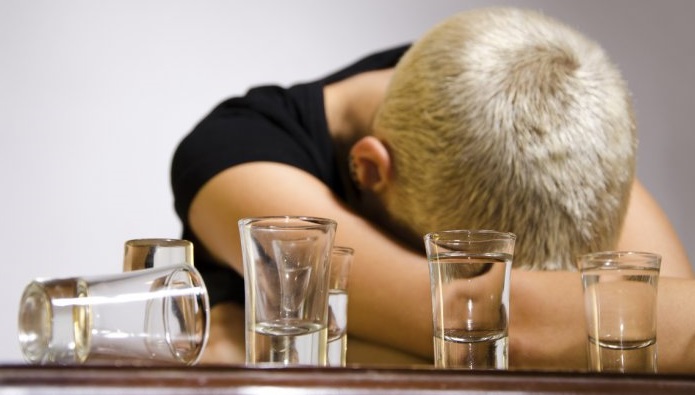
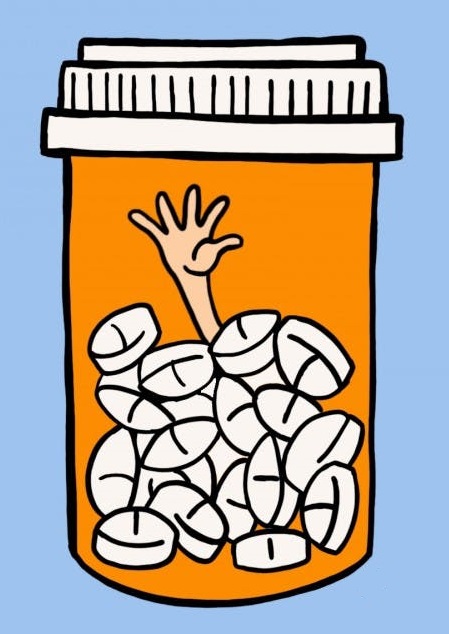
Stress
Sure, all of us have to
deal with stress from time to time. However, LGBTQ
individuals often carry around a lot more of it due to
rampant stigma and prejudice in today’s society.
Although the community has made impressive strides
toward equality, it is still perfectly okay in many
places to be openly discriminatory and prejudiced toward
lesbian, gay, bisexual, transgender and queer people.
LGBTQ individuals with addictions often cite the stress
that they endure from discrimination as a major trigger
for turning to drugs or alcohol.
Internalized Homophobia
Facing discrimination for
being LGBTQ is bad enough. What’s worse is that many gay
and lesbian individuals absorb society’s cruel messages
and internalize them. Without even realizing it
consciously, they may loathe themselves for being who
they are. Self-loathing is a very common trigger for
wanting to escape through the use of mind-altering
substances. Such individuals may even convince
themselves that they deserve to be miserable and
addicted. This is especially likely when the very people
who are supposed to love and care about them reject
them.

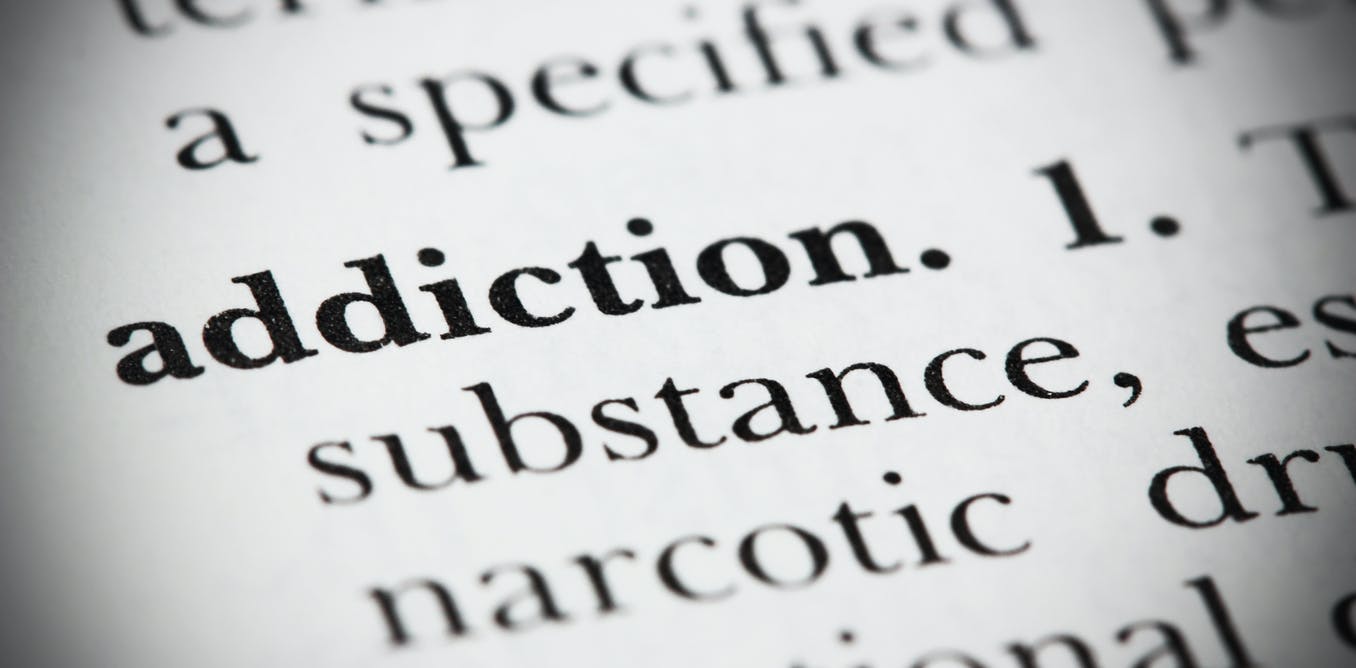
Different Kind of Buzz: Choosing
Sober Life for Pride and Beyond
Live Another Day: QTBIPOC Addiction and Mental
Health Support
Quit Alcohol: LGBTQ Addiction Resources
Drug/Alcohol Rehab USA: LGBTQ Friendly Treatment Centers
Near You
The Recovery Village: LGBTQ Resources
LGBTQ People and Substance Abuse Statistics and
Resources
Why the Risk of Substance Use Disorders Is Higher for
LGBTQ People
National Association of LGBTQ Addiction Professionals
and Their Allies
Legacy Healing Center: LGBTQ Young Adults
LGBTQ Celebs Who Are Sober and Proud
Rejection
Indeed, members of the
LGBTQ community often face the rejection of their
closest friends and relatives. According to the Centers
for Disease Control, approximately 40 percent of today’s
homeless youth identify as LGBTQ. Sadly, many of them
end up on the streets after being rejected by their
families. Whether a person is snubbed and treated poorly
by loved ones or is actually kicked out of their home,
feelings of rejection are difficult to cope with. For
many, drugs and alcohol offer a tempting escape from
those difficult feelings—and from the overall lack of
support that they receive from the people who are
supposed to love them unconditionally.
Self-Medication
Finally, as we will discuss below, a significant
percentage of LGBTQ individuals suffer from mood
disorders, eating disorders and other forms of mental
illness. Regardless of their sexual orientation or
gender identity, someone who suffers from such illnesses
often looks for relief wherever they can. All too often,
this takes the form of substance abuse. When compounded
by the stress of being discriminated against for being
LGBTQ, it is easy to see why members of this population
are so much likelier to develop addictions.
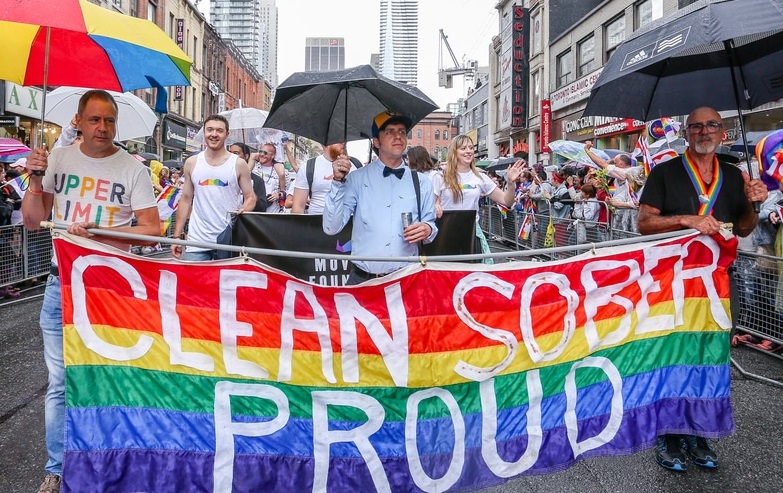
How Alcoholism Became a Serious Problem
in the LGBTQ Community
Healthy Life
Recovery: LGBTQ Resources
Gays Vape at Significantly
Higher Rates According to
Surgeon General
Best LGBTQ And Gay-Friendly Rehab Centers
LGBTQ Addiction Recovery Centers
Free by the Sea: LGBTQ Substance
Abuse Treatment
LGBTQ Guide to Trying Sobriety
Addiction
Group: Treatment for LGBTQ Clients
Detox Local: AAPI Addiction and Mental Health
Resources
Co-Occurring
Conditions and Substance Abuse Among LGBTQ Individuals
Co-occurring conditions,
or dual diagnoses, are common among those who suffer
from substance use disorders. They are even more common
still among members of the LGBTQ community. According to
the Hazeldon Betty Ford Foundation, in fact, 92 percent
of LGBTQ patients in treatment had co-occurring
conditions versus just 78 percent of non-LGBTQ patients.
For these individuals, it is especially crucial to find
treatment that addresses not just their addiction but
their co-occurring conditions as well.
Benefits of
Inclusive Addiction Treatment for LGBTQ
You should select a facility that explicitly states its
inclusivity to members of the LGBTQ community. As
always, words aren’t enough, so look for evidence that
the facility takes extra steps to address the special
needs of LGBTQ individuals. For example, such a facility
will offer traditional group therapy as well as group
therapy that is specific to LGBTQ people. A facility
that goes out of its way to make LGBTQ patients feel
welcome is likelier to have caring, understanding
personnel who have even been trained to more effectively
address the needs of gay, lesbian, bisexual, transgender
and queer individuals.
[Source: Dr. Nicole Folmar-Doss, Ocean Hills Recovery,
August 2018]
Drug Watch: LGBTQ Comprehensive Health
and Wellbeing
Substance Abuse and Cannabis Usage:
Supporting and Affirming LGBTQ Community
Ohio Recovery
Center
Sunshine Behavioral Health: LGBTQ Resources
Addiction
Resource: Best LGBTQ Friendly Rehab Centers
Huff Post: What I Learned While Getting Sober at 21
Mental Health Support Hotlines
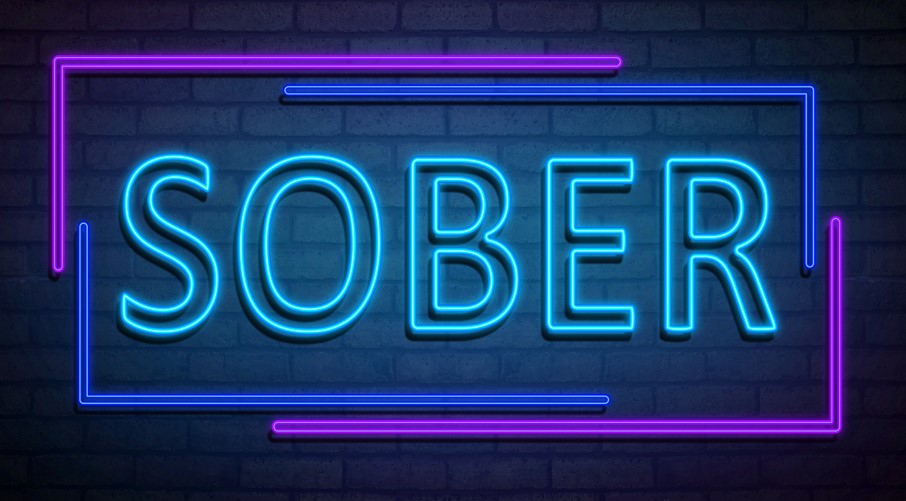
Sober
Spaces for LGBTQ Folks
Some
outspoken LGBTQ recovering alcoholics (including Elton
John), have renewed a push within the queer community
for sobriety and sober spaces as a way to fight
alcoholism and welcome queer people recovering from
substance abuse issues.
LGBTQ
recovering alcoholics need more alcohol-free
alternatives to strictly socializing at bars, clubs, and
boozy brunches. While gay bars historically have been
central to the LGBTQ community, there has been a shift
away from the intoxication culture among younger LGBTQ
people. Many LGBTQ people are favoring cafes and coffee
shops where they can connect, engage, and have
conversations with other queer folks in settings that
don’t center around alcohol.
Numerous studies have shown that the LGBTQ community is
disproportionately affected by alcoholism. One study
found that 25 percent of gay and transgender people
abuse alcohol, compared to five to 10 percent of the
general population. A lack of alcohol-free social venues
for LGBTQ people has contributed to higher rates of
alcohol abuse in the queer community.
Sober Queer Spaces
We Need Alcohol-Free Queer Spaces
Rise of the Sober Queer
Sober Spaces for LGBTQ People
Rejecting the Queer Intoxication Culture
Coffee Shops: New Concept for Queer Space
Why Are So Many Gay Bars Closing?
Queer Friendly Cafes, Bookstores, Restaurants, and More
Cuties: Queer Coffee Shop
Out of the Bars and Into the Cafes
Cafe for Sober Queer Introverts

HOME
QUEER CAFE
│ LGBTQ Information Network │ Established 2017
|